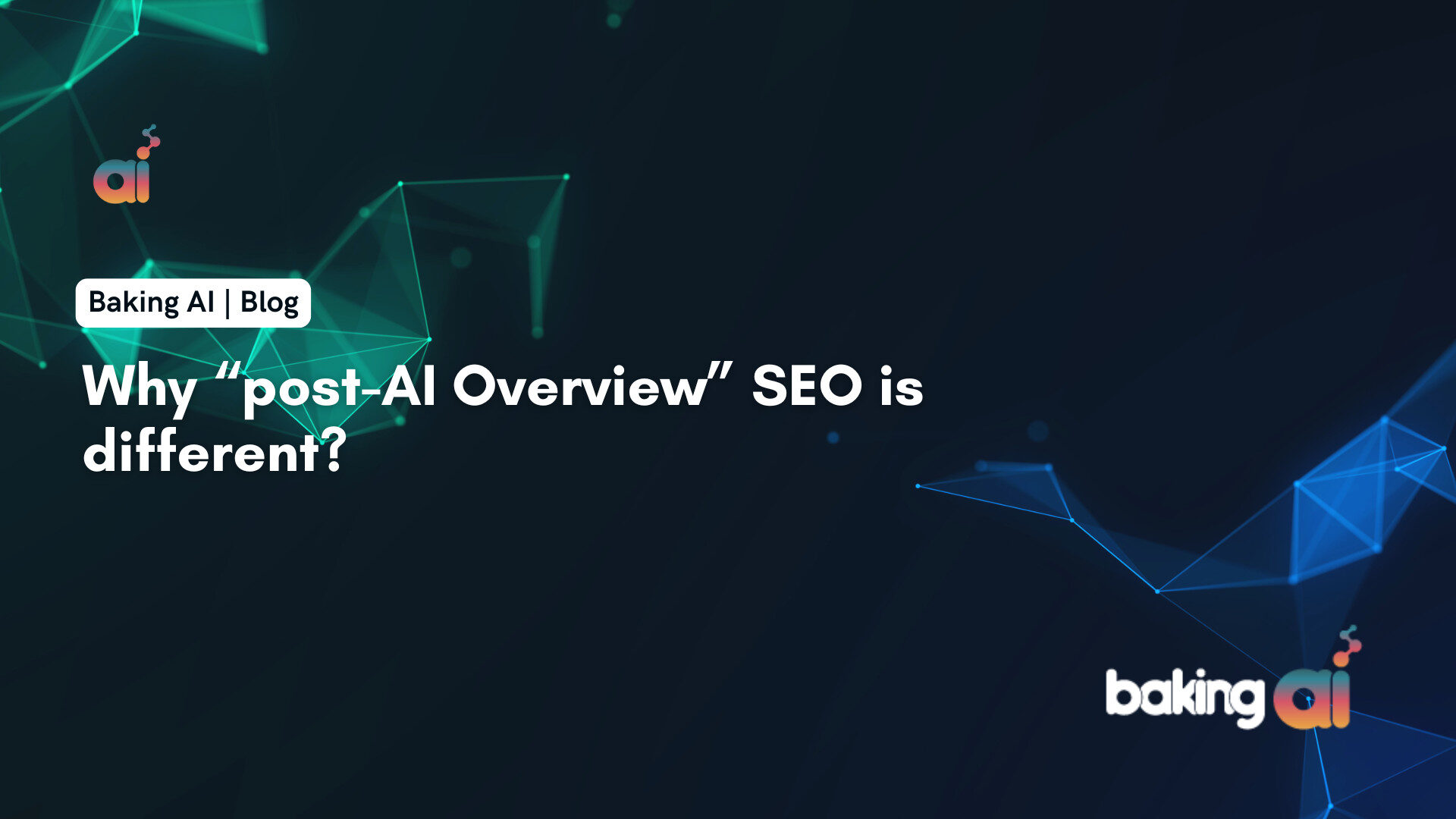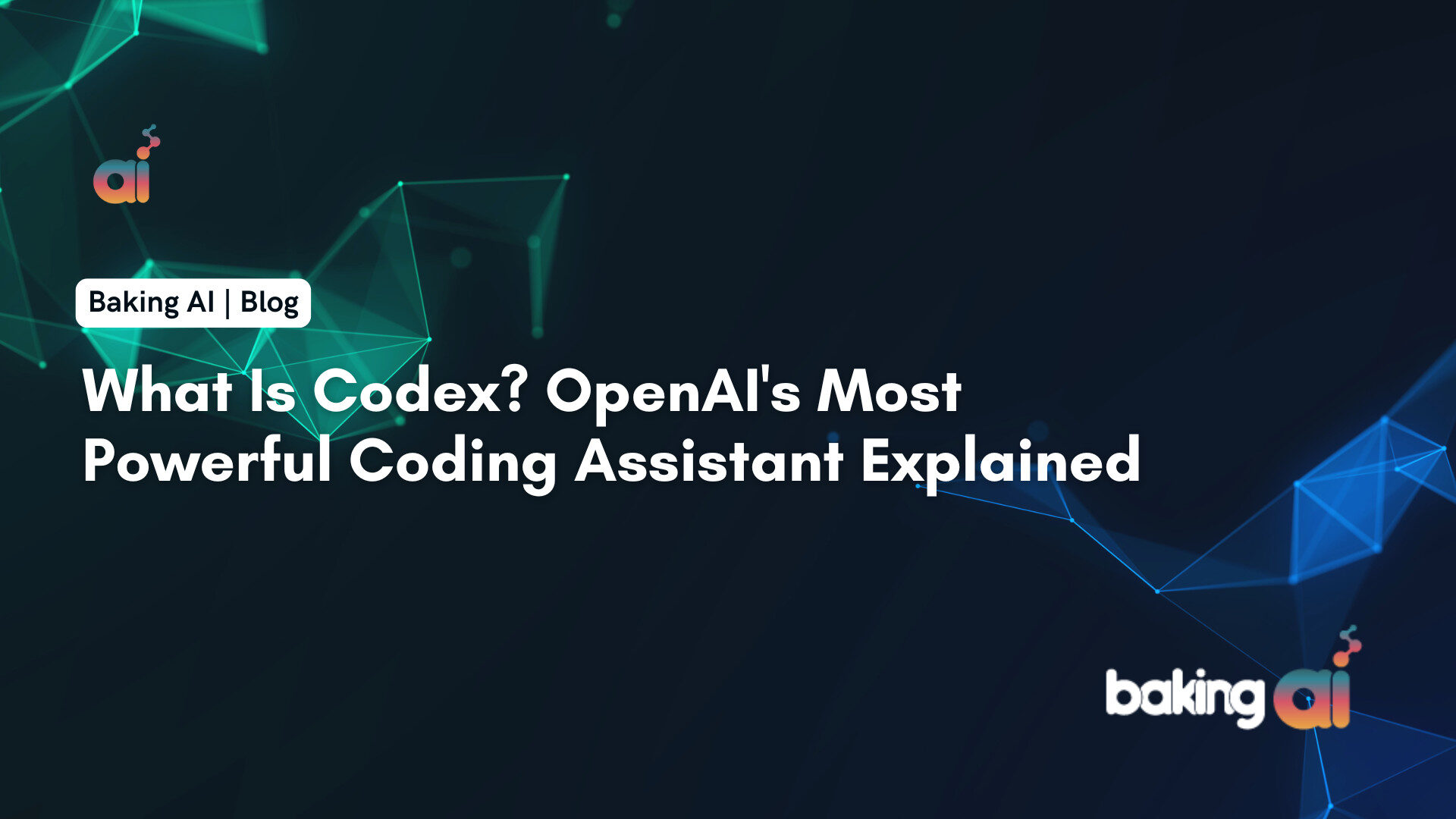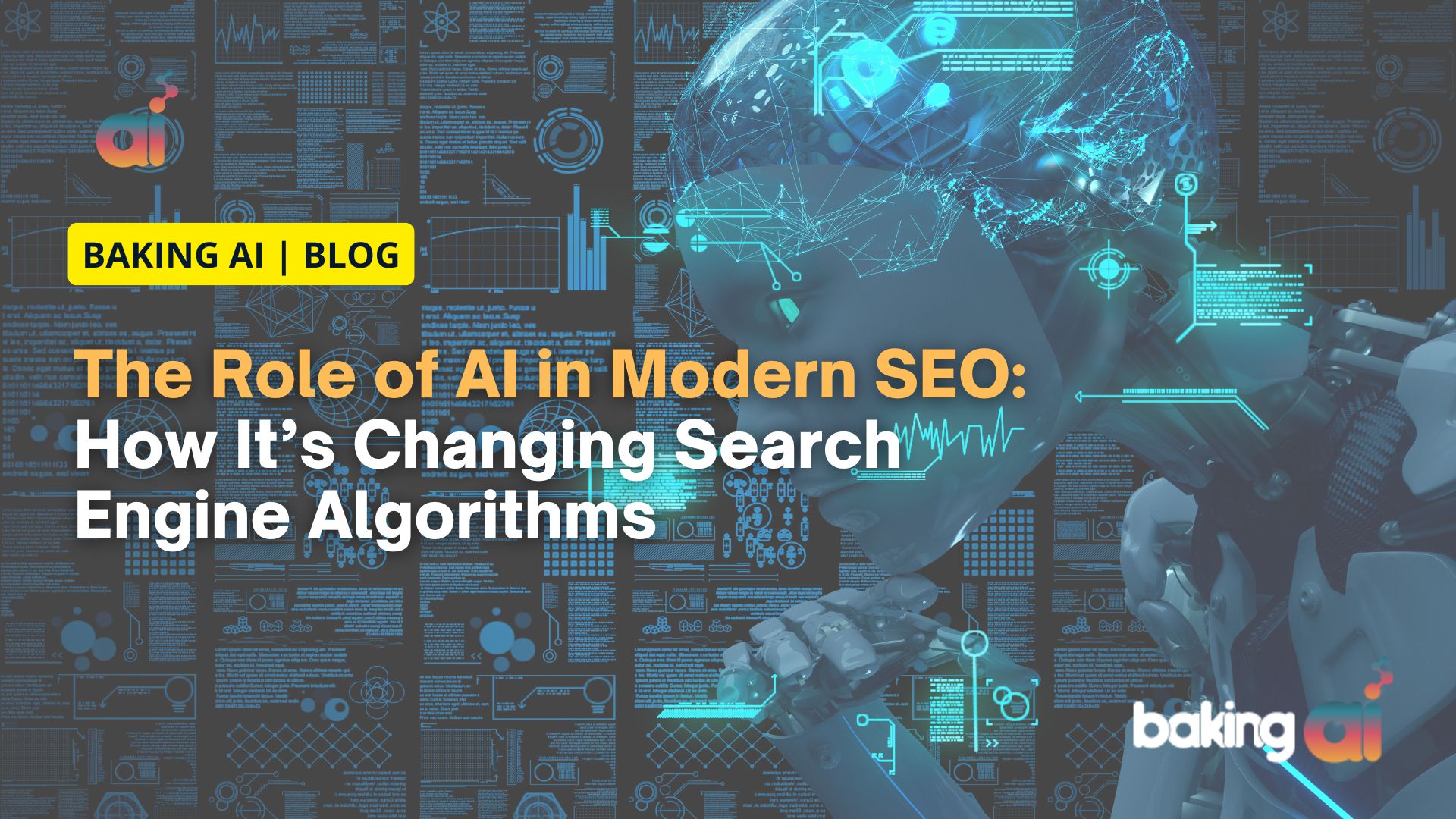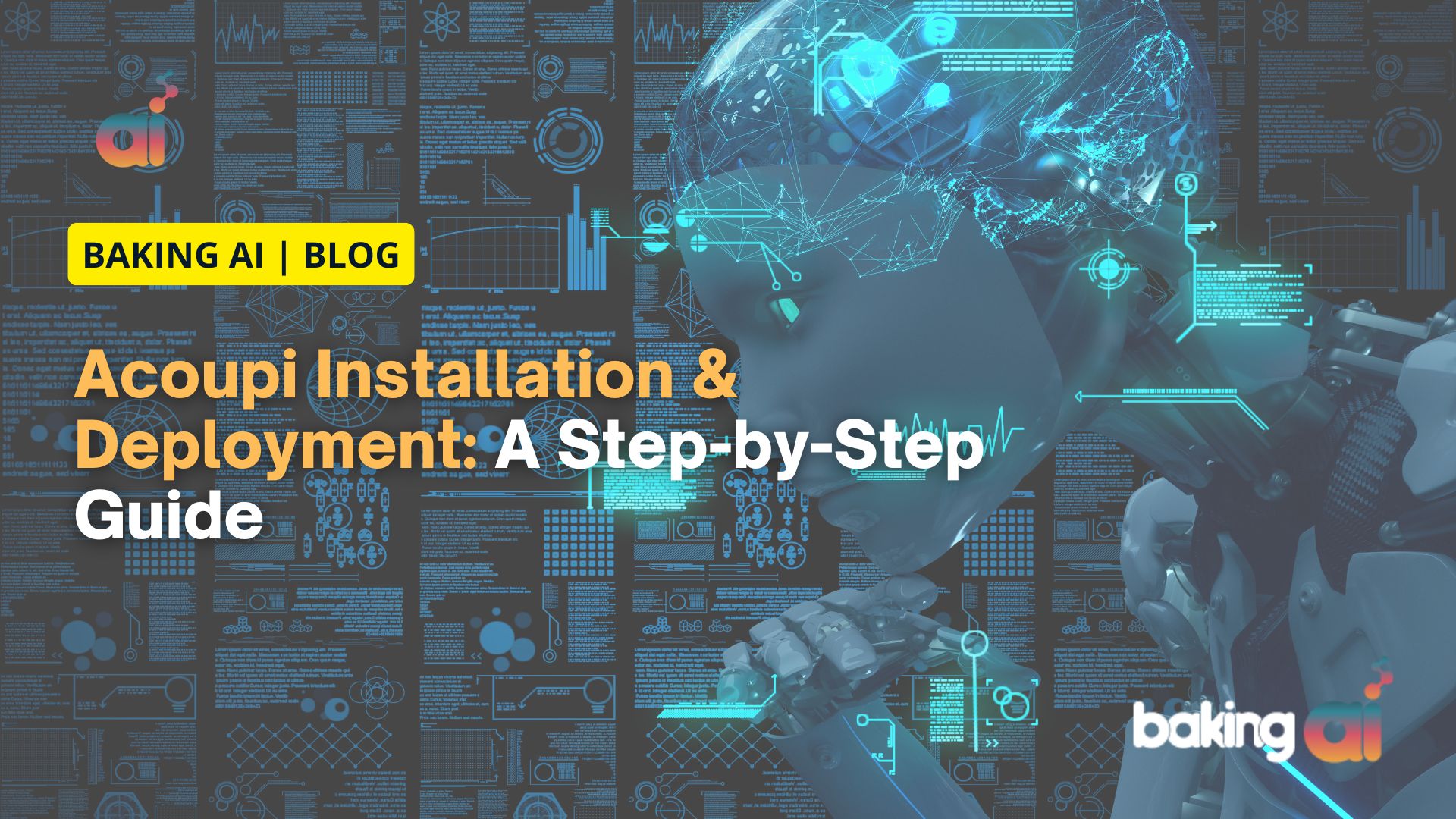LLMOPS (Lifelong Machine Learning Operations) and MLOps (Machine Learning Operations) are both methodologies for managing machine learning (ML) systems. While they share some similarities, they have distinct focuses and serve different purposes in the ML lifecycle.
MLOps, or Machine Learning Operations, is a multidisciplinary approach that combines data scientists and operations professionals. The goal of MLOps is to manage the production ML lifecycle effectively. MLOps promotes a culture of collaboration and communication between these two key groups, which helps streamline the transition from the development phase to the deployment and maintenance phase of machine learning models.
MLOps aims to increase automation in the ML lifecycle, thereby reducing the chances of human error and improving the efficiency of ML systems. It also emphasizes improving the quality of production ML, which involves enhancing ML models’ reliability, robustness, and reproducibility. Furthermore, MLOps pays considerable attention to satisfying business and regulatory requirements, ensuring that ML models are compliant and meet the business’s specific needs.
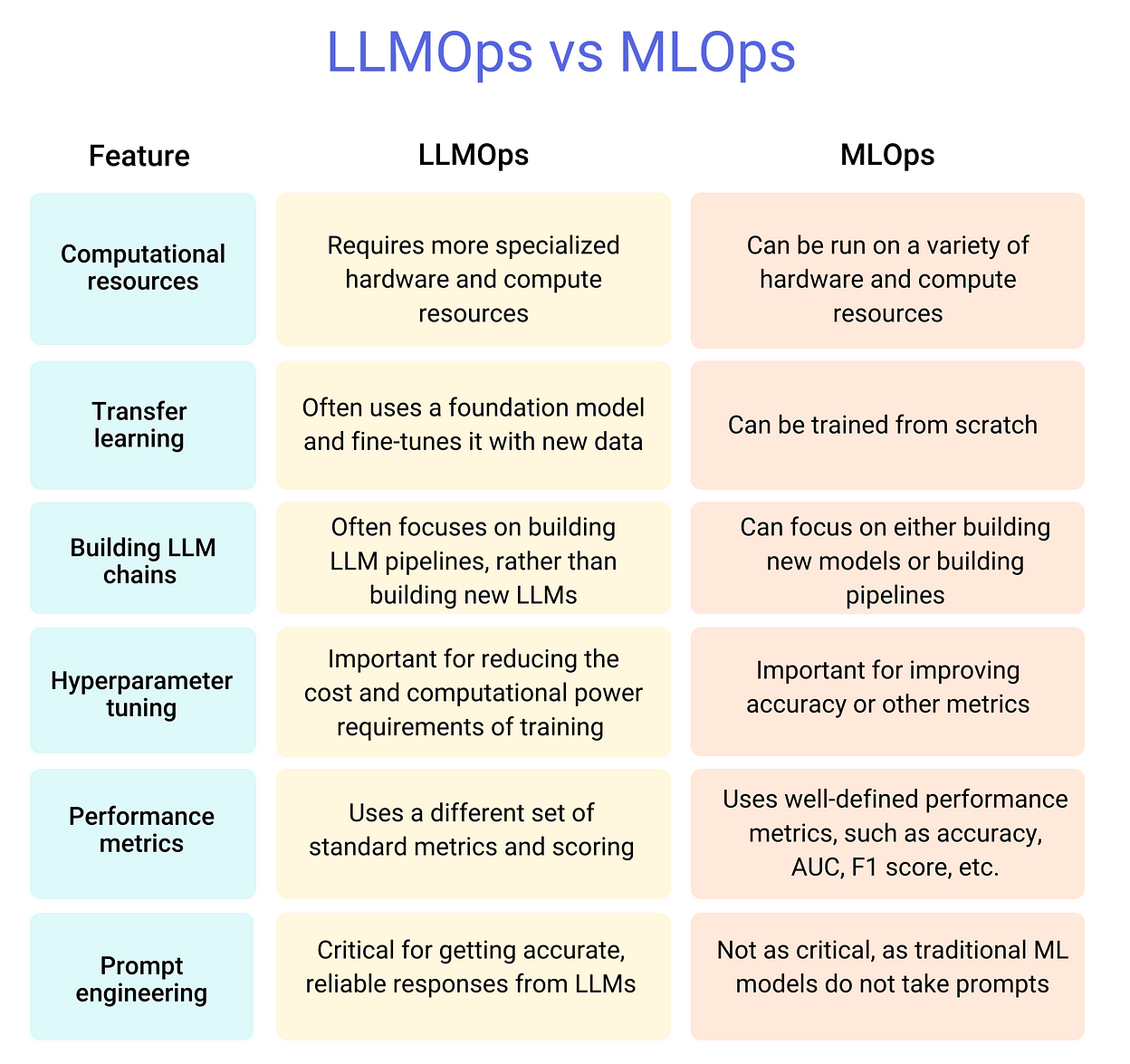
LLMOPS, or Lifelong Machine Learning Operations, extends the MLOps concept by incorporating the principle of “lifelong” learning. In LLMOPS, ML models are not just deployed and managed — they are also designed to learn and improve continuously. This is achieved by enabling the ML models to process and learn from new data over time.
This “lifelong” learning aspect is particularly beneficial for applications wherein the underlying data can change rapidly. In such scenarios, ML models must adapt quickly to maintain effectiveness. LLMOPS provides a framework where ML models can iteratively learn from the new data, allowing them to stay relevant and accurate even in changing data landscapes.
In summary, while MLOps and LLMOPS both serve to manage ML systems, the latter takes a step further by enabling ML models to learn and improve continuously, thereby catering to applications with rapidly changing data.
Summarizing
MLOps and LLMOPS are methodologies for managing machine learning systems. MLOps focuses on addressing the production ML lifecycle, promoting collaboration between data scientists and operations professionals, and improving the efficiency and quality of ML systems. LLMOPS extends MLOps by incorporating “lifelong” learning, enabling ML models to continuously learn and improve from new data over time, which benefits applications with rapidly changing data.
Moreover, both MLOps and LLMOPS emphasize automation to reduce human error and improve the efficiency of ML systems. They also ensure that the ML models comply with business and regulatory requirements. Where they differ is in their approach to the machine learning models. While MLOps sees the model lifecycle in a more traditional sense — develop, deploy, maintain — LLMOPS sees it as a continuous development process. In LLMOPS, the learning never stops. As new data comes in, the models automatically adapt and improve, making them more resilient to changes in the data landscape. This makes LLMOPS particularly useful in dynamic environments where data patterns change rapidly.


